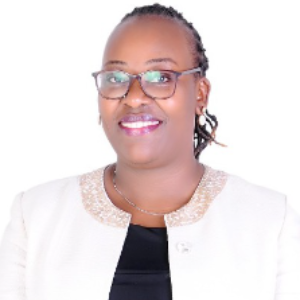Title : The relevance of family involvement in the journey of dementia patients
Abstract:
Dementia is an age mental disorder that makes victims lose normal functionality that need delicate attention. It has been technically defined as a clinical syndrome characterised by a cluster of symptoms manifested by difficulties in memory, disturbances in speech and and cognitive functions, changes in behaviours, and impairments in activities of daily living, and includes a range of neurological disorders characterised by memory loss and cognitive impairment. (Livingston et al,1996) Most family members do not know that Dementia is an age-related disorder or illness and lack the requisite skills to handle the situation. The misconception about many old age-related issues like dementia is the root cause of a systematic social failure to create a conducive rehabilitation environment. In the African context which is sometimes superstitious, in some scenarios, this condition is interpreted as a curse and hence treated with black magic which is against proved scientific solutions to the problem. This scientific ignorance concerning the problem leads to a “Try and err” treatment methodology and in fact, many of the patients die because of wrong prescriptions especially traditional concoctions. Given such a misconceived approach suggesting that dementia patient is a curse, they are consequently discriminated against. They are also considered useless, labelled mad people because of the uncoordinated stories and hence their health needs are not prioritised as the case with “normal” people.
Why is it important for the family to play an exceptional role?
Family members are the primary health care givers and therefore the way how they handle the situation in its early stages determines future deterioration syndromes like total memory loss.Unfortunately, most family members are ignorant about this condition and in most cases thepatients are brought to our facilities when their condition was already mismanaged by family members and we thus cannot do much. For example, incontinence can be managed at early stages through potty training or toilet scheduling before resorting to 24/7 diapers which are also
not good. Family is the only solace(consolation) amidst socially constructed stigmatisation practices. The moment their own family disowns them or fail to understand them, many dementia patients break down because of the sense of uselessness. Illness is the most critical moment in which family can prove a closer bond than ever (Giltin et al 2008) It is the best insurance policy that anyone can ever get. The act of sending dementia patients to elderly care facilities like us in Kampala presents a social paradox. For while on one hand the family members think that they are paying for quality care and rehabilitation of their “abnormal” aged relative, the dementia patients on the other hand feel socially disowned and being thrown away to third party caregivers. This therefore means that the
best person for the job is actually the immediate family.
What can be done to fix the problem?
Professional Elderly care should be understood and practiced as an extension of homes not a dumping place for people considered as “abnormal” on account of ignorance. Immediate relatives should therefore be sensitised concerning the normalcy of dementia in the context of old age so that can be understanding and supportive to dementia patients rather than discriminating them as them present day lepers. There is a need to skill home based care givers on how to handle dementia in its early stages. Unless this is done, many of our elderly home shall be filled with patients who should have been treated and supported from their homes. This skilling of home-based care givers is a vital intervention because until elderly care is appreciated as a human moral obligation, many
transactional rehabilitation centres will crop up and this shall be one of the worst moral decadences of our times.
The task of caregiving is complex and can lead to physical, mental and financial stress for caregivers. Emotions such as guilt, resentment, sadness and the effort expended, as well as the anticipated loss of the relative, emerge (Brodaty H, Donkin M,2009). This therefore supports the need to skill home care givers.
Conclusion
Aging is a natural and inevitable dimension of human life and therefore its associated effects like dementia among others should be conceived and treated as normal. We members of society actually turn abnormal if we consider dementia an abnormal condition. The last people to be abnormal should be the immediate family members because it is old that gives forth to the new.


